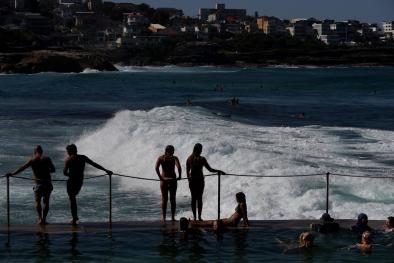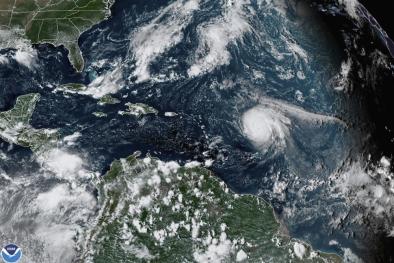Science Source
Forced and unforced ocean temperature changes in Atlantic and Pacific tropical cyclogenesis regions
- States that previous research has identified links between changes in sea surface temperature (SST) and hurricane intensity
- Uses climate models to study the possible causes of SST changes in Atlantic and Pacific tropical cyclogenesis regions
- States that the observed SST increases in these regions range from 0.32°C to 0.67°C over the 20th century
- Examines 22 climate models, and these suggest that century-timescale SST changes of this magnitude cannot be explained solely by unforced variability of the climate system
- Employs model simulations of natural internal variability to make probabilistic estimates of the contribution of external forcing to observed SST changes
- Finds an 84% chance that external forcing explains at least 67% of observed SST increased in the two cyclogenesis regions for the period 1906–2005
- States that model “20th-century” simulations, with external forcing by combined anthropogenic and natural factors, are generally capable of replicating observed SST increases
- Finds that, in experiments in which forcing factors are varied individually rather than jointly, human-caused changes in greenhouse gases are the main driver of the 20th-century SST increases in both tropical cyclogenesis regions
Related Content
Science Source
| Science of The Total Environment
A quantitative analysis of marine heatwaves in response to rising sea surface temperature
Headline

Mar 22, 2023 | Washington Post
Earth’s oceans are showing early and surprising record warming
Headline

May 25, 2022 | Climate Nexus Hot News
NOAA Forecast Busier Than Average Atlantic Hurricane Season For 7th Year In A Row
Science Source
| Advances in Atmospheric Sciences
Another Record: Ocean Warming Continues through 2021 despite La Niña Conditions
Lijing Cheng, John Abraham, Kevin E. Trenberth et al


